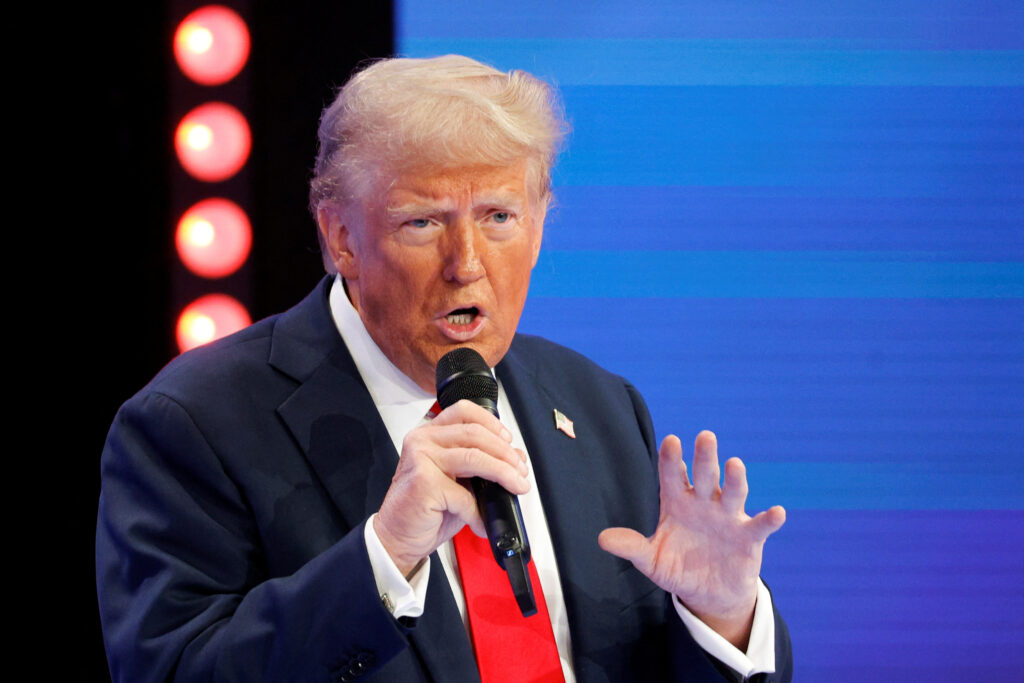United States President Donald Trump has indicated he will “probably” meet Russian President Vladimir Putin this month, while making comments that appeared to blame Ukrainian President Volodymyr Zelenskyy for Moscow’s invasion of Ukraine.

Speaking to reporters following US-Russia negotiations in Saudi Arabia, Trump dismissed concerns that Kyiv had been excluded from the talks, suggesting Ukraine should have already resolved the conflict.
“I think I have the power to end this war, and I think it’s going very well. But today, I heard, ‘Oh, well, we weren’t invited.’ Well, you’ve been there for three years. You should have ended it…,” Trump said during a news conference at his Mar-a-Lago estate in Palm Beach, Florida.
“You should have never started it. You could have made a deal. I could have made a deal for Ukraine.”
Trump expressed confidence in achieving a resolution following discussions in Riyadh, which were led by US Secretary of State Marco Rubio and Russian Foreign Minister Sergey Lavrov.
“They were very good. Russia wants to do something, they want to stop the savage barbarism,” Trump said.
When asked whether his administration would support Russia’s calls for elections in Ukraine as part of a peace settlement, Trump alleged—without evidence—that Zelenskyy’s approval rating was as low as 4 percent. He pointed out that elections in Ukraine have been postponed under martial law.
“Yeah, I would say that, you know, when you want a seat at the table… wouldn’t the people of Ukraine have to say like, ‘It’s been a long time since we’ve had an election?’” Trump stated.
“That’s not a Russia thing, that’s something coming from me, and coming from many other countries also.”
His remarks came as Zelenskyy reiterated that any agreement to end the war must include Ukraine’s participation.
“No decision can be made without Ukraine on how to end the war in Ukraine,” Zelenskyy said during a press conference in Turkiye, where he met with Turkish President Recep Tayyip Erdogan.
Following the talks in Riyadh, Rubio and Lavrov reportedly agreed to establish high-level teams to work toward ending the conflict “as soon as possible,” according to the US State Department.
US National Security Advisor Mike Waltz acknowledged that negotiations would involve discussions about territorial adjustments and post-war security guarantees.
European leaders have reacted cautiously to the developments, wary of potential concessions to Moscow. UK Prime Minister Keir Starmer stated he would consider deploying peacekeeping troops to Ukraine, while French President Emmanuel Macron signaled openness to sending forces—but only to non-combat zones.
German Chancellor Olaf Scholz, however, dismissed discussions of a post-war security force as “highly inappropriate” at this stage. Meanwhile, Polish Prime Minister Donald Tusk ruled out sending Polish troops to Ukraine.
With European leaders struggling to find a unified response, France is set to host further discussions on Wednesday after an emergency summit earlier this week failed to produce a clear consensus.
At his Mar-a-Lago press conference, Trump endorsed the idea of European peacekeepers but suggested US troops would not be involved.
“If they want to do that, that’s great, I’m all for it,” Trump said. “I’m all for it if they want to do that.”



